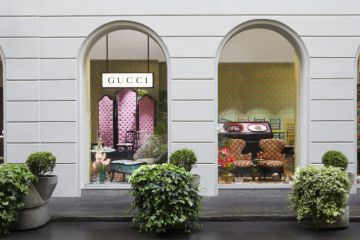Tantri Mustika’s handmade ceramics are a celebration of slow and steady craft
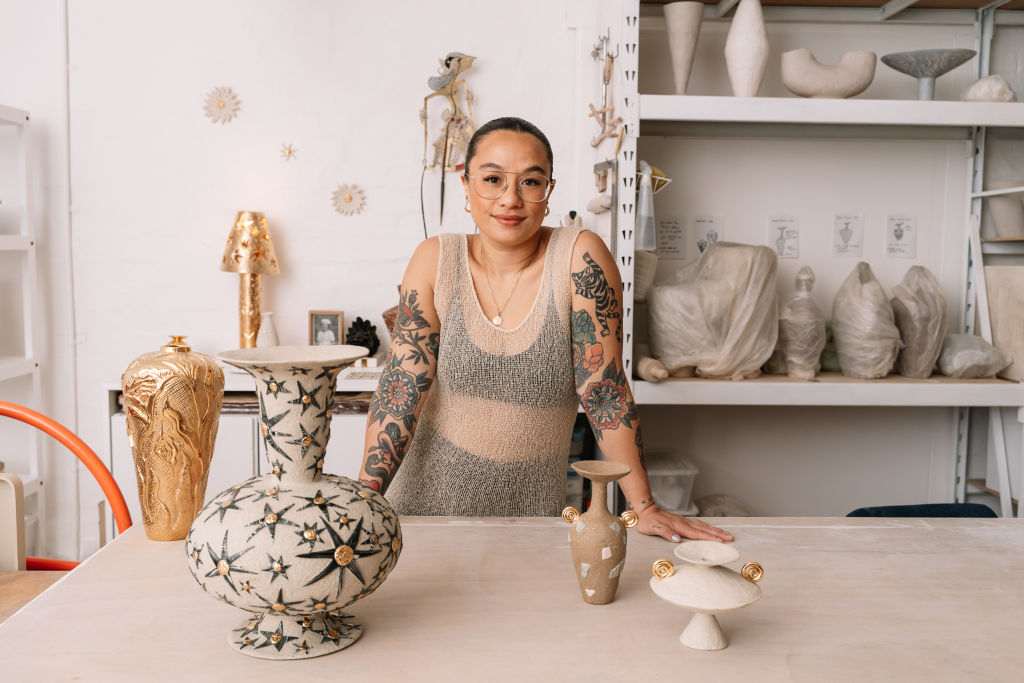
After a decade as a hairdresser, the Melbourne-based ceramicist “accidentally” fell into clay work. Now, her handcrafted ceramic wares have earned her a cult following – but she’s taking it slow, embracing creativity on her own terms.
When asked how she got into ceramics, Melbourne-based maker Tantri Mustika says she “accidentally fell into it”. “I’ve always been creative and dabbled in hobbies,” Mustika tells Broadsheet. “I picked up ceramics as a hobby, desperately in need of a creative outlet after hairdressing for over 10 years.”
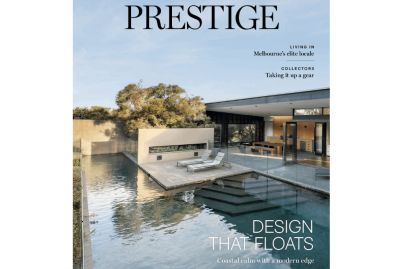

Clay quickly became an obsession. She started taking it to the barbershop where she worked, playing with the material whenever there was a spare minute. With a newfound joy in ceramics, Mustika cut down her hours as a hairdresser. “I started posting my work on Instagram and friends started asking ‘Can I buy one of these vases for a wedding present?’ or ‘Can I get one of these?’ So I made a website, got help from friends, had some photos taken, and launched my business – that’s why it feels accidental.”
Mustika’s signature style is best described as minimalist maximalism. Her mainstay is vessels and vases, but she’s also dabbled in other handmade ceramic wares like brooches, earrings, magnets and incense burners. And while she’s come to be known for her coloured terrazzo-esque look, the creative is careful to not let it define her practice.
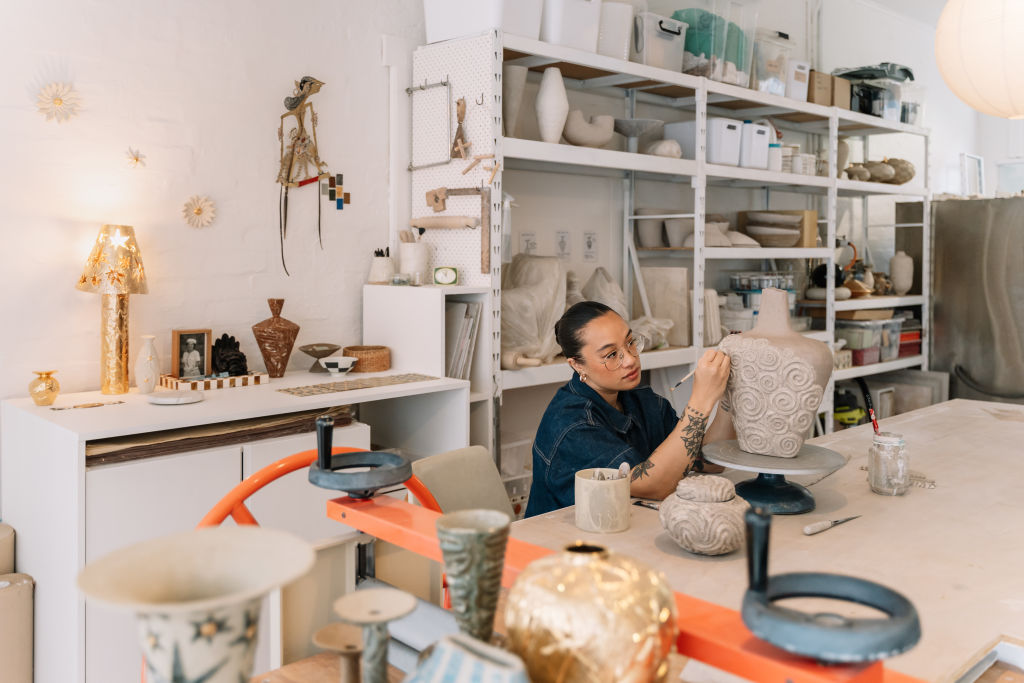
“Describing my work has always been a bit challenging for me,” she explains. “I initially established my career with a distinct aesthetic that I was known for, but over time I’ve branched out and I no longer create the same things consistently.”
There’s an inimitable beauty to Mustika’s wares. Her distinctive touch is evident in every piece through quirks, odd shapes and off-kilter corners. It’s where the real beauty lies, she says. “I’ve spent years hand-building my creations, avoiding the wheel because I really appreciate the uniqueness of wonky shapes. You can feel the difference in a handcrafted item.”
Much of Mustika’s recent work references old-world designs and her Balinese heritage, inspired by childhood memories, moments in nature or photos from the past. “I’m currently working on a new series of vases inspired by Rangda, a popular motif in Balinese mythology,” she says. “The hair of Rangda inspired the squiggly designs on the vases, and that’s just one example of how I’ve taken a visual cue and reinterpreted it to create something new.”
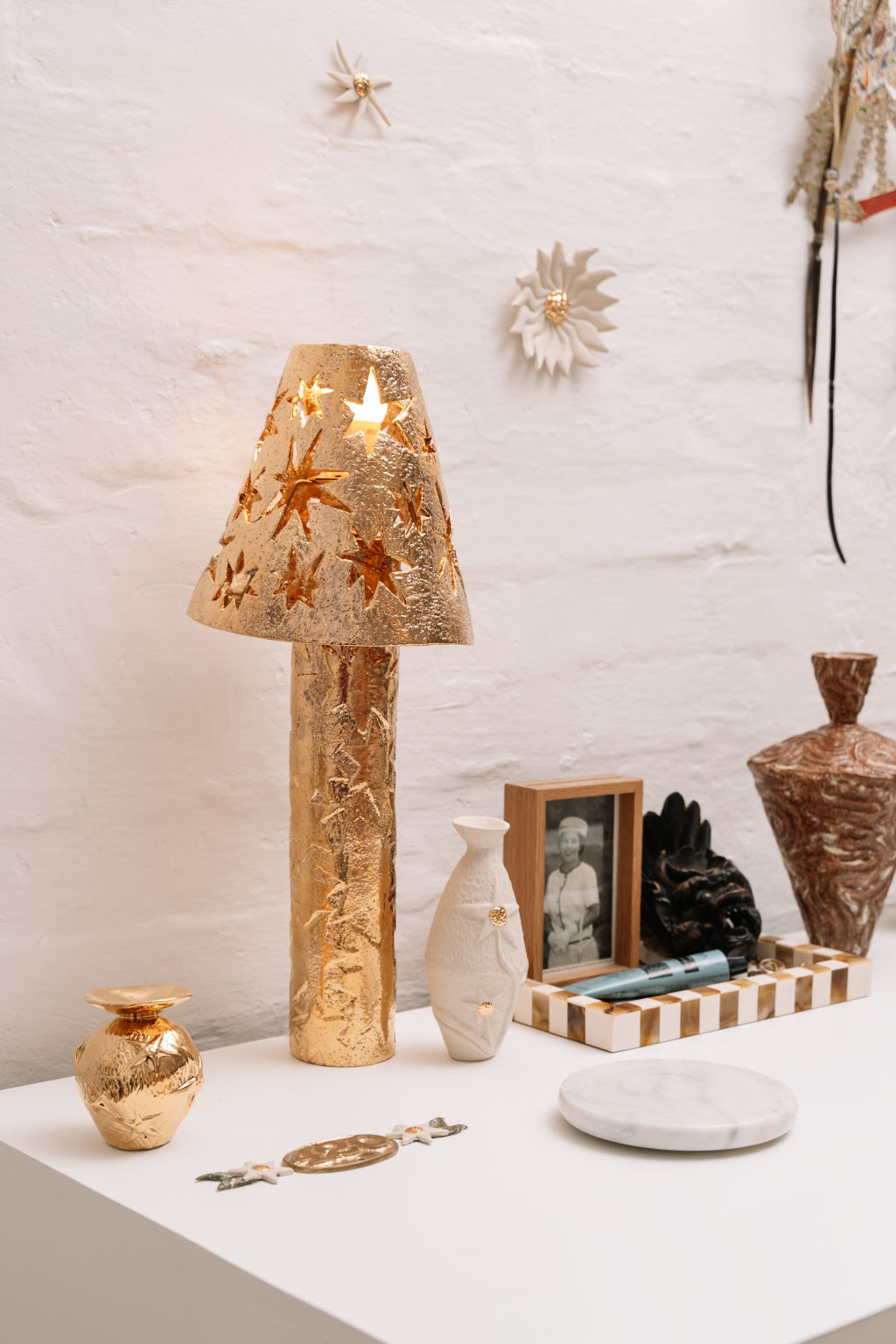
Though her 25,000-plus followers on Instagram and the cult-like status of her ceramic wares may suggest otherwise, running her business has been far from easy for Mustika. “I had my shop at Collingwood Yards, and I was running workshops, and I was doing exhibitions – my life looked amazing from the outside, but the reality was far from it.”
After starting and growing her business in 2017, Mustika took the leap to move into the studio at Collingwood Yards. Though it was a financially daunting task, the move felt right at the time. Then Covid hit, and Melbourne was thrown into a series of lockdowns. “I was determined to make it work but I found myself so overwhelmed and stressed. And the added pressure of running a business reliant on my creativity left me feeling exhausted.”
With a lease renewal approaching, coupled with increasing rent and a key staff member leaving, Mustika made a snap decision to close her shop and studio. She sold off her pieces, stored what she could, and moved into her garage studio at home.
“For the past year and a half, I’ve given myself breathing space and now I feel more inspired than ever,” she says. “My new motto is ‘Move slow to go far’. I used to rush into everything but now I recognise the importance of downtime for creativity.”
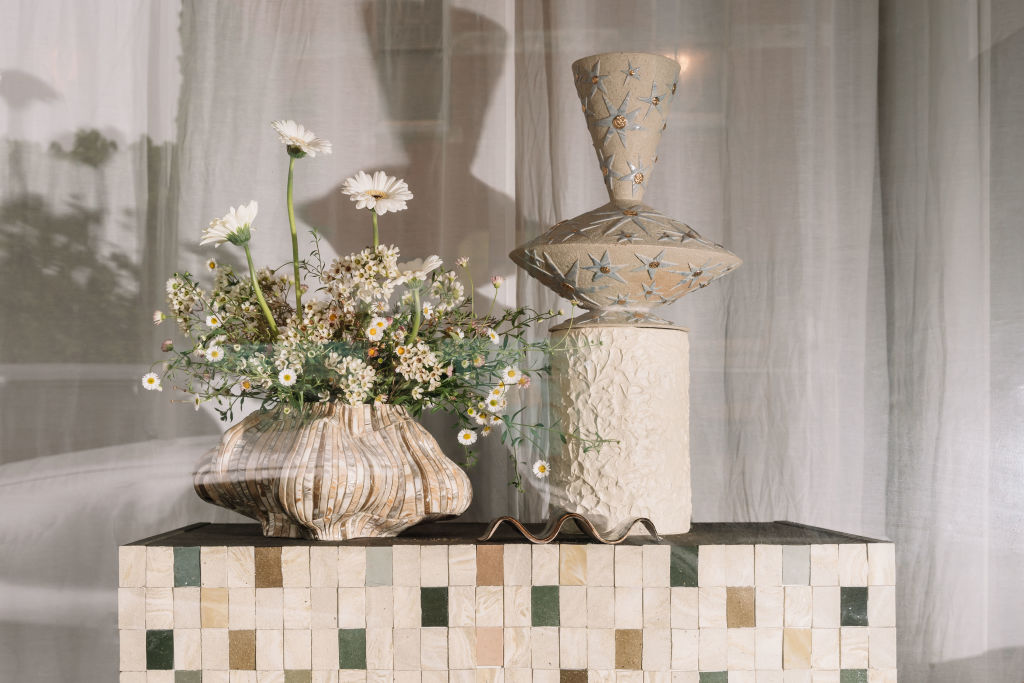
That same, slower approach extends to how Mustika handles social media. “I feel like I’ve aged out of it sometimes,” she says, laughing. “I’ve never been on Tiktok and Twitter’s not for me. I stick to Instagram mostly, but even then, I’m pretty scatterbrain about it. I post when I feel like it or get obsessed with something new.”
While many creatives feel the pressure of algorithms and constant content, Mustika is focused on maintaining her joy in the process. “The moment it starts to feel like a chore, I know I’ve lost something.” Instead, the ceramicist prefers authentic in-person connections, whether it’s giving talks or reaching out to interior designers directly to collaborate on projects.
Creativity has been the guiding light in this new, slower era of her business, and it’s helped Mustika rediscover the joy in making. “I’ve always been stuck by the idea of what I should be doing, but I’m finally experiencing a free-flowing moment where I’m like ‘I don’t even know if anyone’s going to want to buy this stuff, but I love it’.”
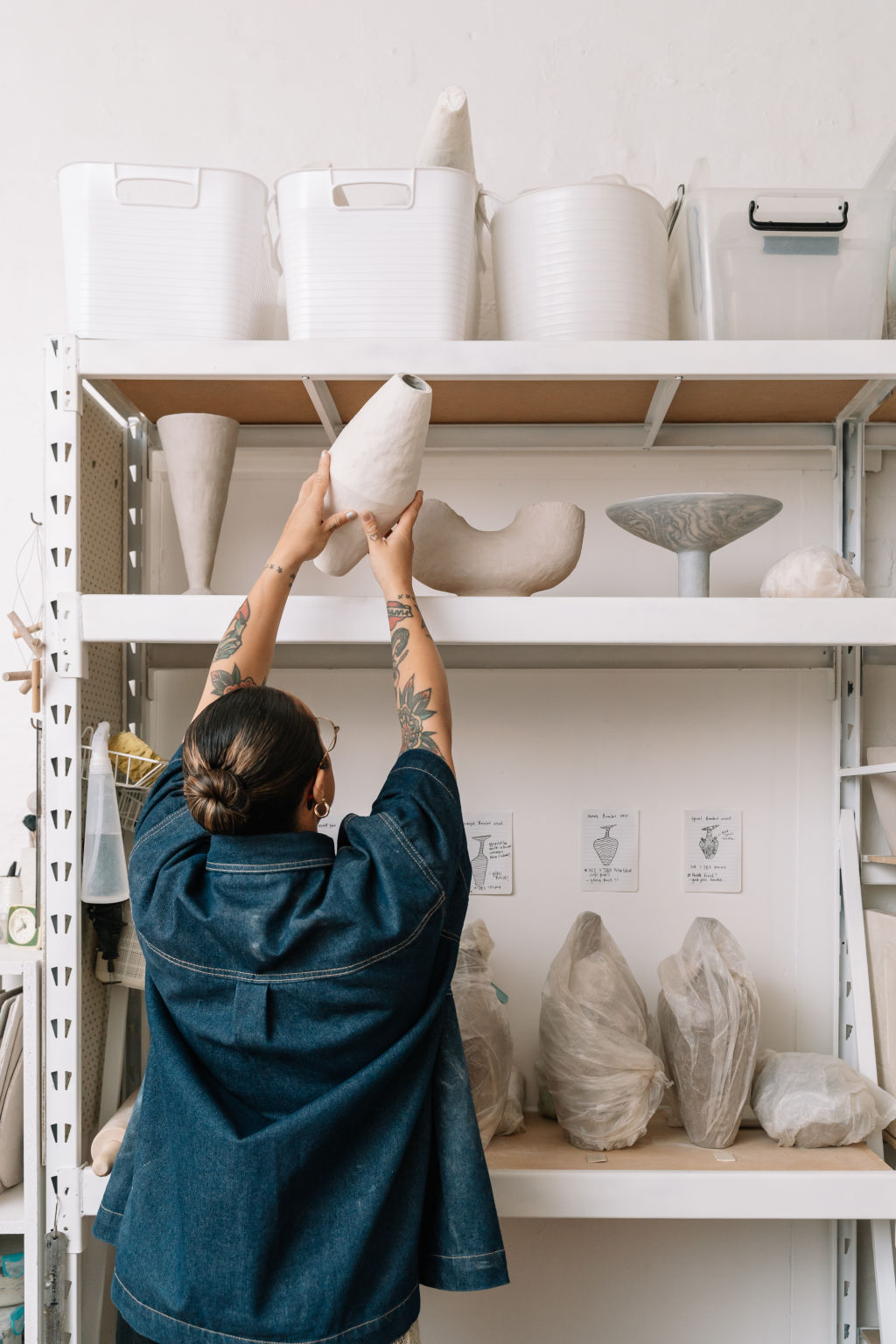
And so do others. Despite the growing market of mass-produced and copycat ceramics, Mustika has built a loyal community that keeps coming back for custom pieces and new collections. “My goal is to craft pieces that people will cherish for years – objects that they would want to keep and potentially pass down through generations.”
These days, she works out of a small studio in Carnegie, which she shares with her good friend, and founder of textile brand Trinket Solo, Megan McNeill. After living and working in Melbourne’s north side for much of her adult life, Mustika made the move south to live closer to her family, and for a more affordable studio to rent with McNeill.
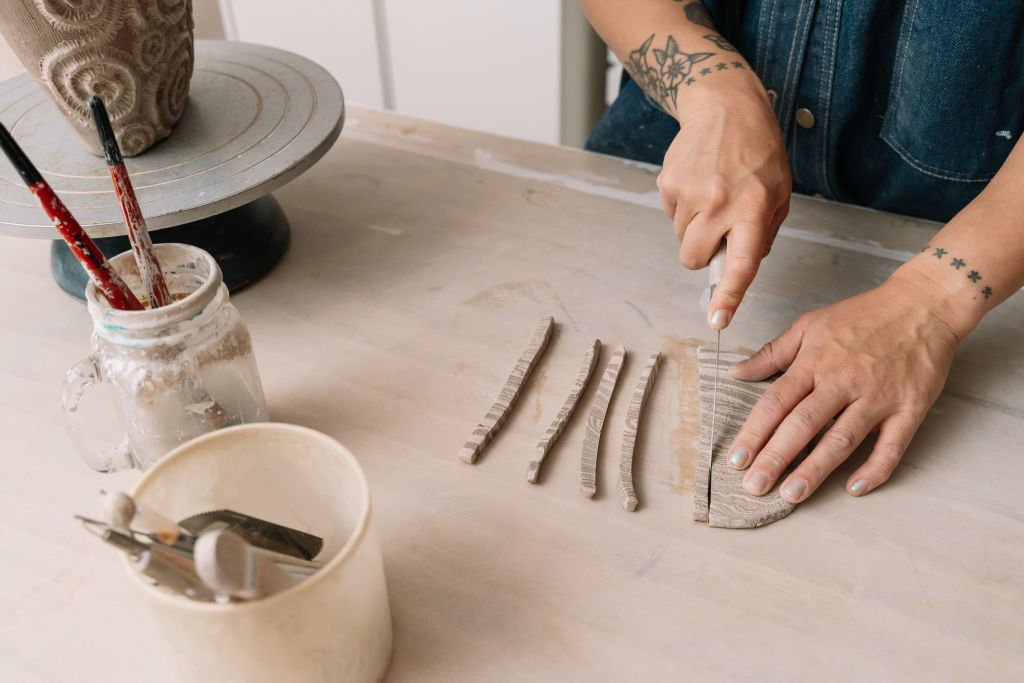
“I stumbled across a little shopfront in Carnegie, close to my house. It was a bit small and ugly, with scrambled egg yellow walls and old wallpaper, [but] when I walked in, I knew I wanted it.”
As well as being good mates, Mustika and McNeill have a budding creative relationship, too. “We’re quite compatible, I love everything she makes and she loves everything I make. Our styles look good together.”
The pair’s studio has a street-front window, but there are no plans yet to open a store. That doesn’t stop Mustika from displaying her work and dressing the window when she feels like it. Next year, she might even restart her workshops. “It’s great that I’m enjoying this process again and only doing the things that feel right.”
This article first appeared in Domain Review, in partnership with Broadsheet.
We recommend
We thought you might like
States
Capital Cities
Capital Cities - Rentals
Popular Areas
Allhomes
More






